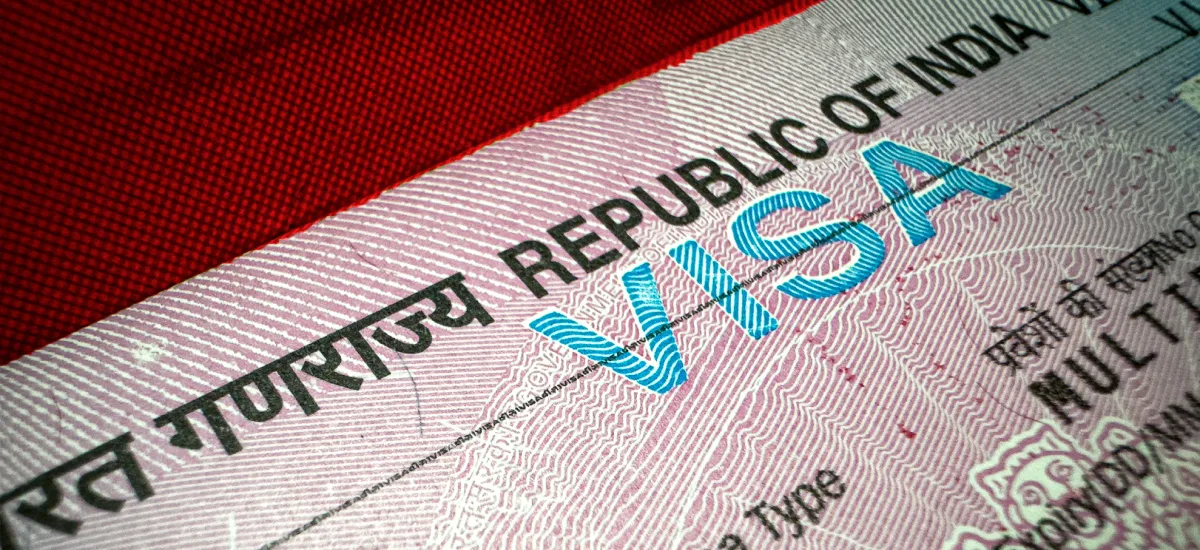India's rich cultural heritage and economic opportunities attract millions of visitors annually, necessitating a diverse range of visa types. From leisure travellers to business professionals and researchers, India offers tailored visa categories to accommodate various purposes. This comprehensive guide explores the eligibility criteria, privileges, and application process for each visa type, including the importance of international travel insurance for added security.
India, with its rich tapestry of cultures, landscapes, and traditions, draws millions of visitors from around the globe each year. To facilitate smooth entry and stay for foreign nationals, the Indian government offers a diverse array of visa type categories. From leisure travellers to business professionals, researchers to medical patients, there’s a visa type for every purpose. Here, we delve into the various types of Indian visas, their eligibility criteria, the privileges they entail, and travel insurance.
How many types of visa exist in India?
Here are the most common types of visa issued in India:
1. e-Visa:
The e-Visa system revolutionises India’s visa application process with three distinct sub-categories:
a. e-Tourist Visa: Perfect for leisure travellers interested in sightseeing, yoga retreats, or cultural exploration with a validity of up to 1 year and multiple entries allowed.
b. e-Business Visa: Tailored for entrepreneurs, investors, and business professionals seeking opportunities in India with a validity of up to 1 year and multiple entries permitted.
c. e-Medical Visa: Designed for individuals seeking specialised medical treatment, including traditional Indian systems of medicine with a validity of up to 6 months and triple entries allowed. It also helps to have health insurance to prevent out-of-pocket expenses.
2. Employment Visa:
Targeting highly skilled professionals intending to work in India, the Employment Visa or Working Visa offers a duration of up to 5 years or the tenure of the employment contract, with the possibility of extension within India. Much like the Schengen Work Visa, the Indian Employment Visa provides opportunities for foreign nationals to contribute to India's growing economy.
3. Business Visa:
Catering to individuals pursuing business ventures in the country, the Indian Business Visa grants a validity of up to 5 years, extendable within the country. The Indian Business Visa serves as a gateway for entrepreneurs, investors, and business professionals seeking to explore India's market potential. Whether establishing business partnerships, conducting market research, or attending trade fairs and exhibitions, the working visa facilitates smooth entry for commercial activities.
4. Entry/ “X” Visa:
For the family members accompanying foreign nationals, the Entry/ “X” Visa permits a stay of up to 5 years, with the option of extension within India. The Entry/ “X” Visa is designed to reunite families and support the integration of expatriates in India.
5. Tourist Visa:
Tailored for leisure travellers exploring the sights and sounds of India, the Tourist Visa offers a validity of 30 days, though it cannot be extended within India. The Tourist Visa beckons travellers to embark on unforgettable journeys across India's diverse landscapes and cultural treasures. Whether marvelling at ancient monuments, partaking in spiritual pilgrimages, or indulging in culinary delights, this visa category offers a glimpse into India's rich tapestry of heritage and hospitality.
6. Research Visa:
Facilitating research pursuits across various fields, the Research Visa provides a duration of 5 years, extendable within India. The Research Visa is tailored for scholars, scientists, and researchers seeking to explore India's academic and scientific landscape. Whether conducting field studies, collaborating with Indian institutions, or participating in research projects, this visa category offers opportunities for intellectual exchange and discovery.
7. Transit Visa:
Designed for travellers transiting through India en route to their final destination, the Transit Visa offers a stay of up to 15 days but cannot be extended within India. The Transit Visa serves as a convenient option for travellers, making brief stopovers in Indian airports or seaports during their onward journeys. Whether en route to neighbouring countries or connecting flights to distant destinations, this visa category facilitates smooth transit arrangements for international travellers.
The different types of Indian visas are reflective of India’s commitment to facilitating travel and fostering collaboration on a global scale. Whether one seeks to explore India's cultural heritage, pursue professional endeavours, or avail of specialised medical care, there’s a visa category tailored to meet diverse needs. By understanding the nuances of each visa type and adhering to the prescribed application procedures, foreign nationals can embark on their Indian journey with confidence, knowing that their entry and stay are duly authorised and supported.
Furthermore, availing of international travel insurance is also recommended in case of unfortunate incidences, and for peace of mind. With its welcoming ethos and diverse visa offerings, India invites travellers from around the world to experience its myriad wonders and forge meaningful connections across borders.
India's commitment to facilitating global travel is evident through its diverse array of visa types catering to the diverse needs of travellers. Whether seeking leisure, employment, or medical treatment, there's a visa category designed to accommodate every purpose. By understanding the nuances of each visa type and adhering to the prescribed application procedures, travellers can embark on their Indian journey confidently. Additionally, considering the importance of international travel insurance for unforeseen circumstances adds an extra layer of security and peace of mind during travels to India.




























